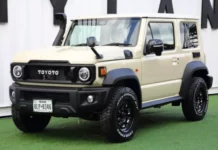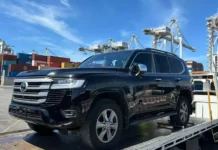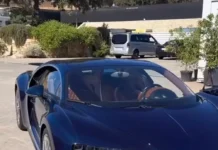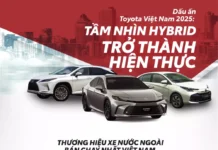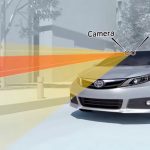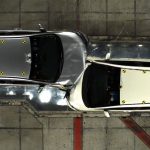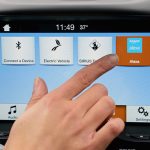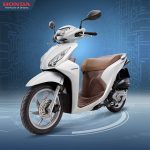
|
|
The Toyota Corolla Fielder is one of the latest models embroiled in the recent scandal affecting the Japanese auto giant. Photo: Toyota. |
According to Reuters, the scandal involving safety inspection fraud by Japanese automakers has taken a new turn. Toyota and Mazda have both halted shipments of certain models after Japan’s Ministry of Transportation discovered irregularities in their type certification applications.
Wrongdoings Across Multiple Brands
Notably, similar irregularities were also found in the documentation of fellow Japanese automakers Honda, Suzuki, and Yamaha. Reuters cited a report from the Ministry of Transportation, stating that these automakers had submitted inaccurate or altered safety inspection data during the type certification process for several vehicles.
The Ministry has ordered Toyota, Mazda, and Yamaha to suspend deliveries of certain models. They also announced plans to inspect Toyota’s headquarters in Aichi prefecture early this week.
|
|
|
Toyota’s headquarters is set to be inspected this week. Illustration: Reuters. |
These developments come after the Ministry of Transportation requested automakers to investigate their type certification applications from late January. This was also part of an expanded investigation into a safety inspection fraud scandal involving Daihatsu, a Toyota subsidiary, last year.
A string of scandals has put a question mark on the future of Toyota’s Chairman, Akio Toyoda. Institutional Shareholder Services and Glass Lewis, consulting firms, have recommended that shareholders oppose Akio Toyoda’s re-election, citing the discovery of “a series of certification irregularities” at the Toyota group.
“As the person in charge of the Toyota Group, I sincerely apologize to our customers, car lovers, and all related parties for this,” Akio Toyoda said in a press conference.
Chairman Akio Toyoda acknowledged that the affected vehicles had not undergone the proper certification process before being sold. The world’s largest automaker has halted shipments and sales of three models produced in Japan.
Specifically, Toyota identified six different tests conducted in 2014, 2015, and 2020 where irregularities occurred. The three affected models are the Toyota Corolla Fielder, Toyota Corolla Axio, and Toyota Yaris Cross, in addition to discontinued versions of the Toyota Crown, Toyota Isis, Toyota Sienta, and Lexus RX.
|
|
|
Chairman Akio Toyoda apologizes for the recent scandals. Photo: Reuters. |
Reuters provided an example, stating that instead of measuring collision damage on both sides of the hood, Toyota only conducted the test on one side. Regarding the irregularities in fuel efficiency and emissions testing, Toyota stated that it is still investigating and expects to conclude by the end of June.
However, Toyota asserted that no issues were found regarding performance contrary to Japanese regulations and laws, so customers do not need to stop using their vehicles.
In relation to the affected models, Toyota Vietnam has confirmed in a statement on its website that although sharing the same commercial name, the Yaris Cross model mentioned above is completely different from the Yaris Cross model currently distributed by Toyota Vietnam.
Shipment Suspension of Multiple Models
Mazda has also suspended shipments of the Roadster RF and Mazda2 models in Japan since last week, after discovering that workers had altered the results of engine control software tests.
|
|
|
The Mazda2 model has been suspended from shipment in the Japanese market. Photo: Mazda. |
The automaker also found that collision tests of the Mazda Atenza and Mazda Axela had been tampered with by using a timer to activate airbags in some frontal collision tests, instead of relying on collision detection sensors.
Reuters reported that Yamaha had halted shipments of a sports motorcycle model. As for Honda, the company confirmed irregularities in noise and power testing over a period of more than eight years (until October 2017) on about 20 models. However, these models are no longer in production.
Interesting Books for Your Drive
The ‘Xe’ category suggests interesting books with captivating topics. During breaks on your journey, a good book can be a great companion.

